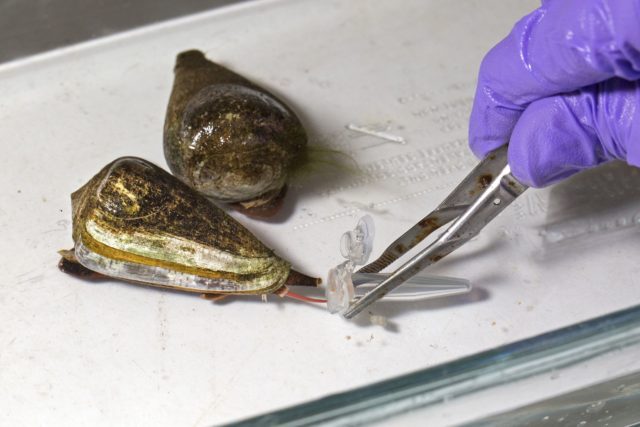
Have you ever heard of the deep sea? This is what science calls all those waters and sea beds that are below 200 meters deep. This is the most extensive ecosystem on the planet and covers 66% of its surface.
So if an alien asked us to describe the most common landscape of our home, we should tell him about endless plains of mud, interspersed here and there by mountains and underwater volcanoes, canyons, and crevasses, flooded with cold saltwater (4 ° C), under crushing pressure and in total darkness. An unwelcoming place but one that houses immense biodiversity that we still do not know.
But what does an environment hundreds of meters below the surface have to do with you?
Science has shown that the deep sea is without a doubt a greater good for the benefit of all humanity. This is the great supplier of the seas through the recycling of nutrients, where the organisms of the deep sea feed on marine snow (fall of tiny parts of organisms and fecal matter), and recycle these nutrients that are then returned by currents to superficial waters.
Many species that are part of our diet such as tuna, Dorado, and billfish (marlin, sail, and swordfish) also feed at these depths. The deep-sea is known as the radiator of the planet, and our planet would be much warmer if the ocean did not absorb heat from the sun.
In this planetary radiator, the rays of the sun heat the surface of the sea, the currents carry those warm waters towards the cold and dark deep sea where the heat dissipates. To make matters more complex, the deep sea holds chemical and molecular secrets that science is exploring to cure cancer, inflammation, and nerve pain.
Deep-sea and COVID
The deep-sea even plays an essential role in tackling the COVID-19 pandemic. According to the World Health Organization, to combat the pandemic we need to do “tests and trials” … as it turns out that the most reliable test for the detection of the SARS-CoV-2 virus uses a PCR reaction, which uses enzymes discovered by the first time in deep-sea bacteria and hot springs.
Did you see that it has to do with you?
Despite its great importance, the deep sea is unknown by the vast majority of people, so much so that it is known as the last frontier of human knowledge. We know more about space than about the depths of the ocean, which poses a challenge for the sustainable management of the resources that lie there.
How to protect what is not known?
Perhaps you have already heard the phrase “only what is loved is protected and only what is known is loved” and it is precisely for this reason that the Deep-Sea Biology Society (DSBS), the world’s most recognized group on this topic, recently organized a virtual conference where it brought together more than 350 people who presented more than 150 new research on the biology, ecology, and management of deep environments.
Latin America and Costa Rica were noted with the discussion “Deep Latin America: Challenges and opportunities for deep-sea research in the region” organized by the Pelagos collective. In this open talk, Dr. Elva Escobar (National Autonomous University of Mexico) pointed out that in our region the bureaucracy delays the import of technology, as well as the import and export of samples. Likewise, Dr. Jorge Cortés (University of Costa Rica) called for the new research carried out in our deep waters to include professionals from the region since Latin America has a high scientific quality.
Ten Costa Ricans participated in the conference, 5 being co-investigators in studies presented at the conference. Research carried out in our country reported 3 species of mussels new to science, 13 known species of crustaceans that were reported for the first time in the country, and a list of 147 species of crustaceans and 75 of corals that have been observed in the sea.
Despite the vital importance of the deep sea, and all that is yet to be discovered, in recent years pressure has increased to exploit ever deeper fish, mineral (rare metals), and energy (natural gas and oil) resources, as a result, depletion of resources on land and in coastal waters is produced.
Growing world populations that demand resources, together with technological advances that reduce operating costs, bring us closer to the moment when we will have to decide how to manage the deep sea.
More and more companies are putting pressure on governments and international organizations (such as the International Authority of the Seabed) to begin the exploitation of the deep sea.
However, these environments are very sensitive to disturbances, as demonstrated by the DISCOL experiment, where areas exposed to mineral extraction have not recovered 26 years after the disturbance.
Furthermore, the possible effects that exploitation may have or how to mitigate them are not known in detail. This has concerned the scientific community around the world, which in response created the DOSI project that brings together professionals in science, technology, law, economics, and politics to give responsible management of the deep sea.
Dr. Lisa Levin (Scripps, USA) pointed out that during the next decade fundamental decisions will be made about the future of the deep sea, and urged that all those interested in its proper management advocate politically at all levels to favor responsible use of our oceans.
In terms of the environment and marine resources, Costa Rica is positioned as a leader in research and diplomatic processes. Our economic model makes us turn our gaze to our most valuable and extensive resource: the ocean. Sustainably taking advantage of this resource is key to the development of the country and the region.

